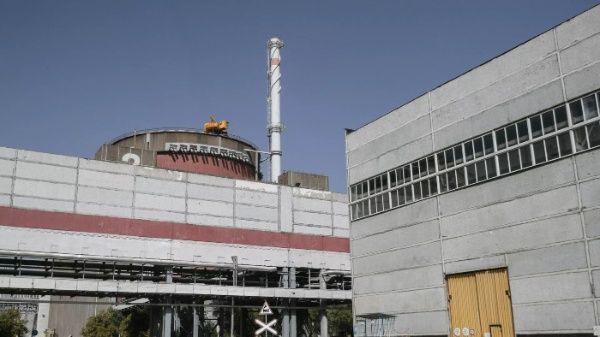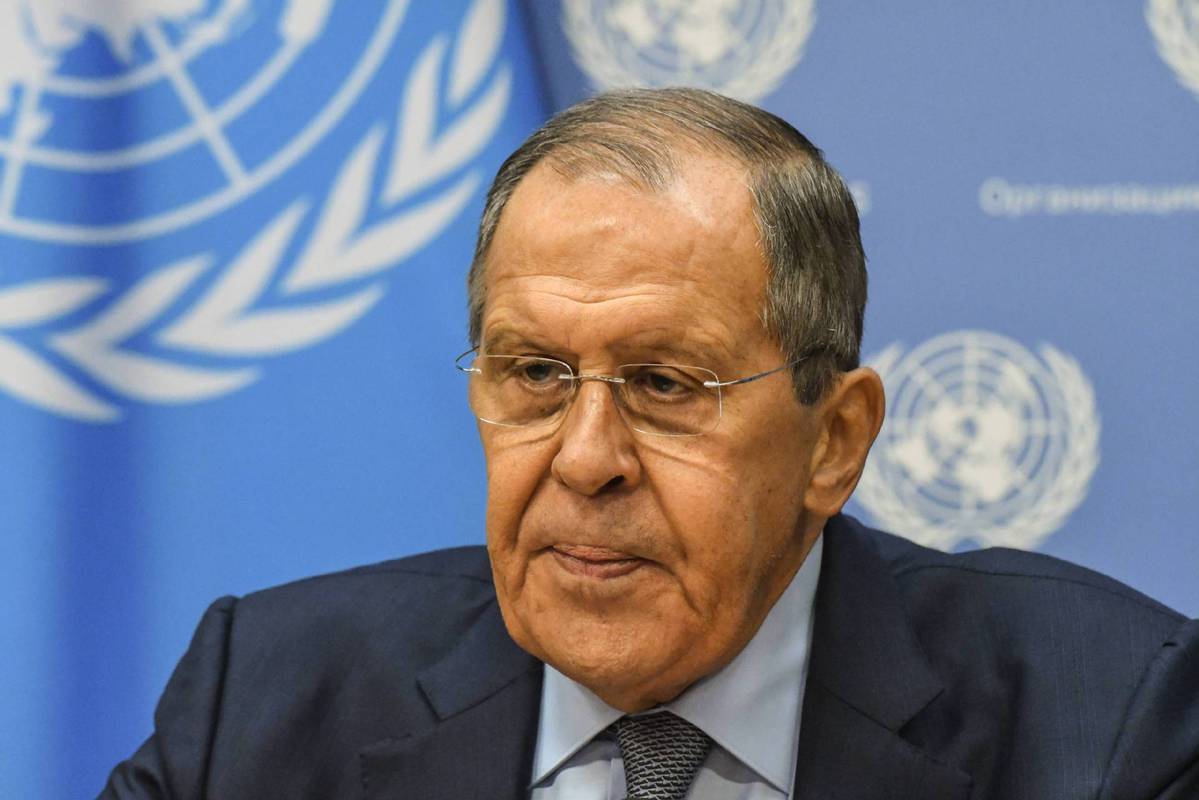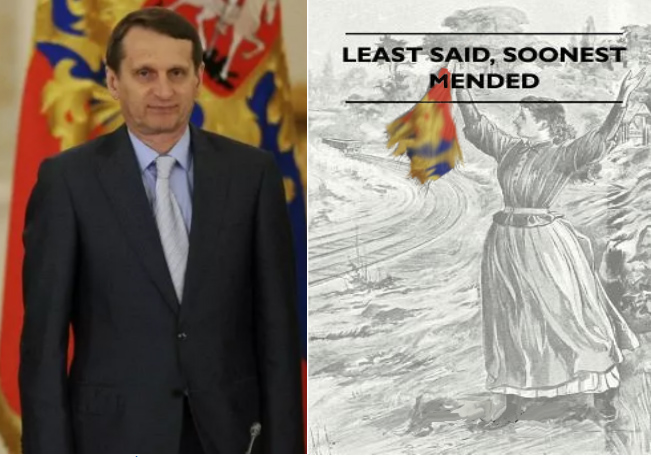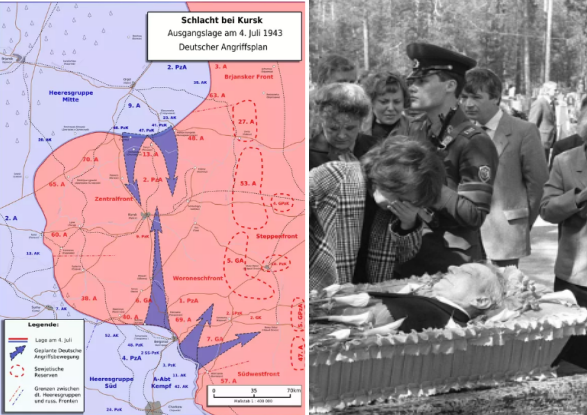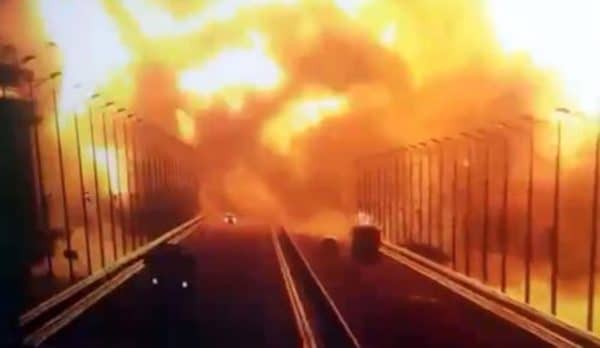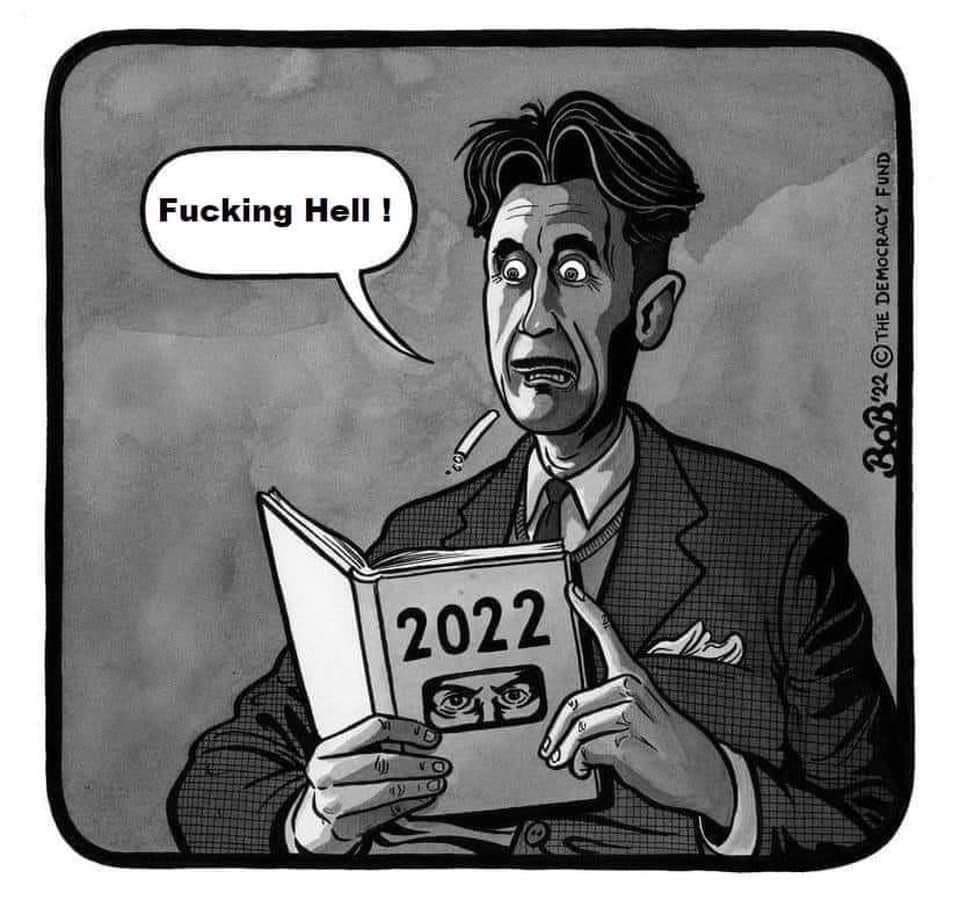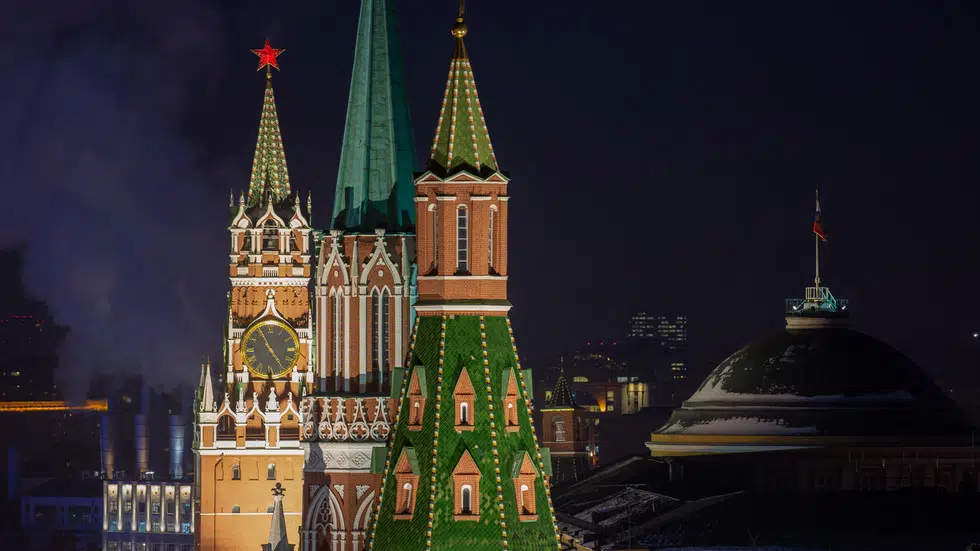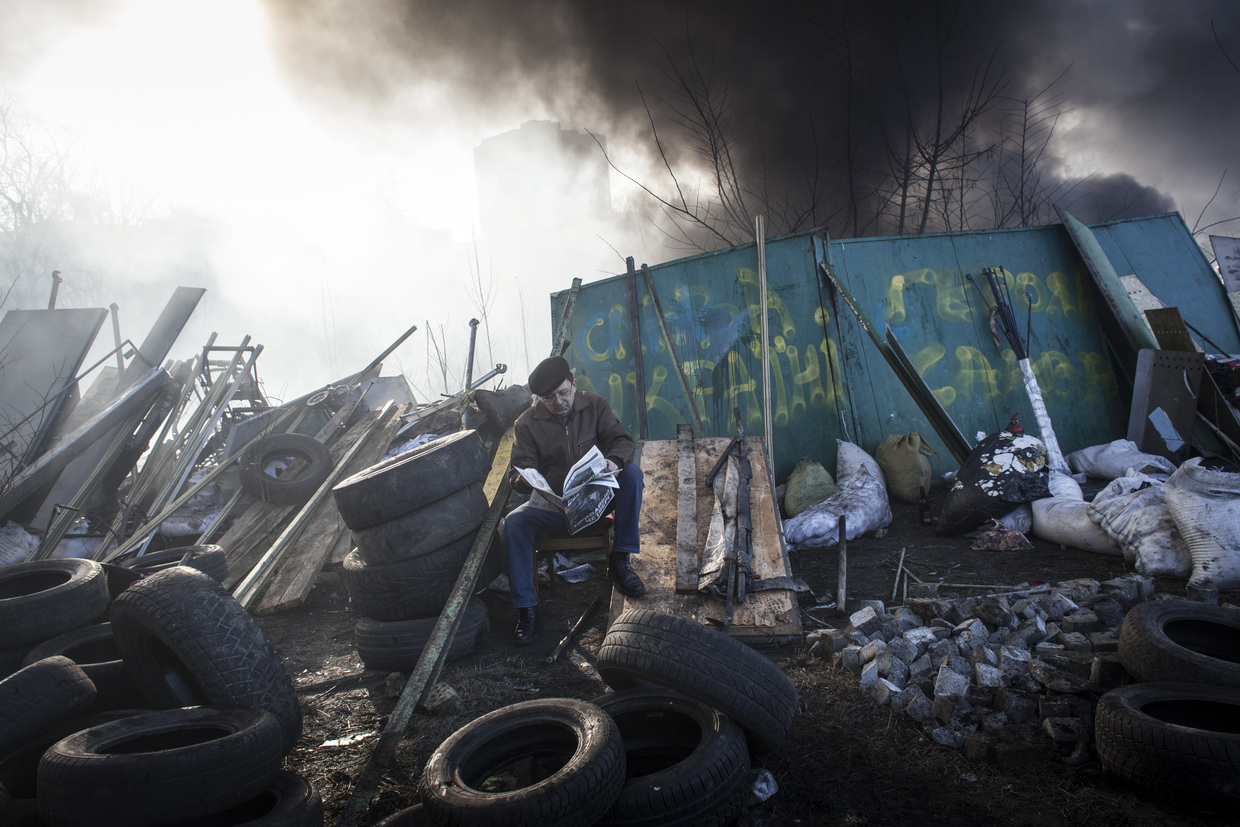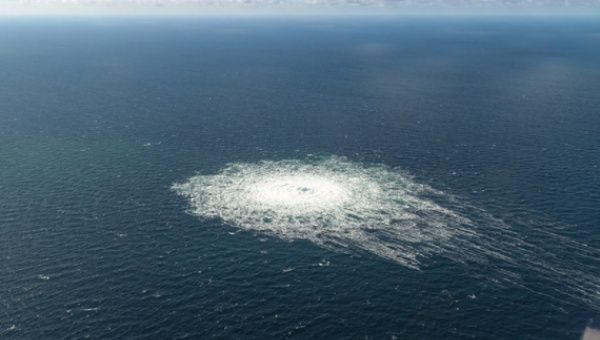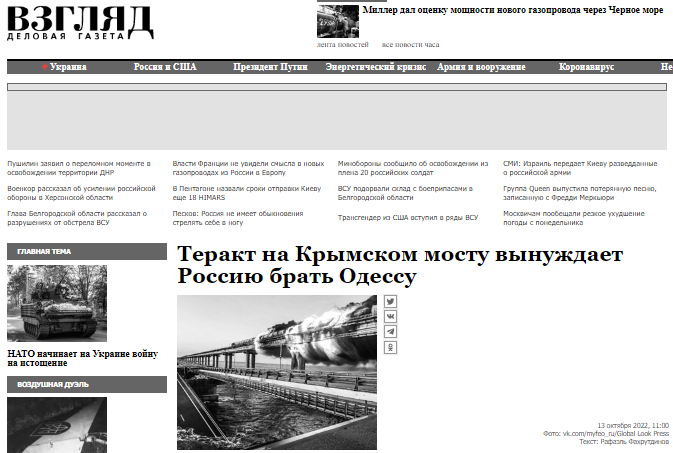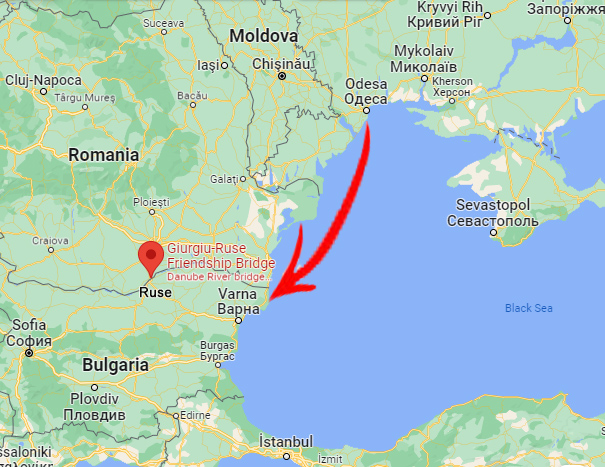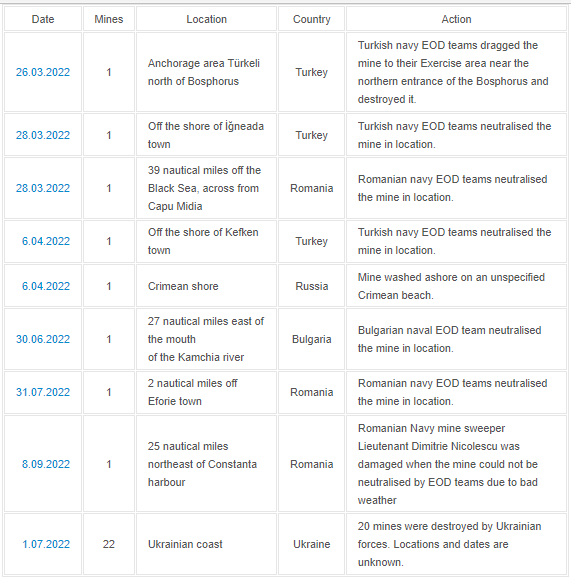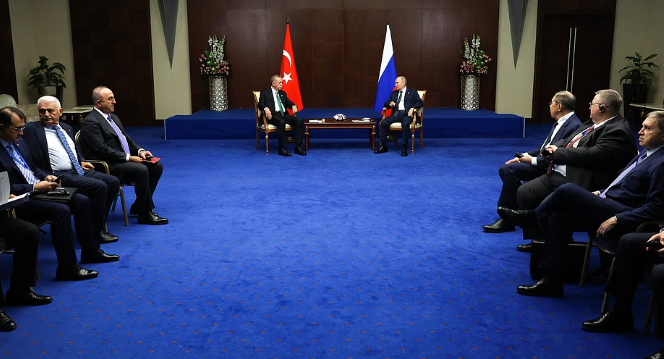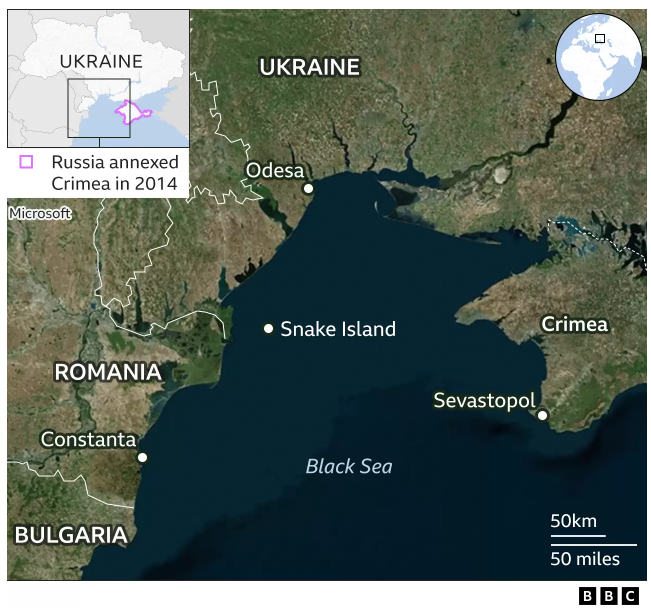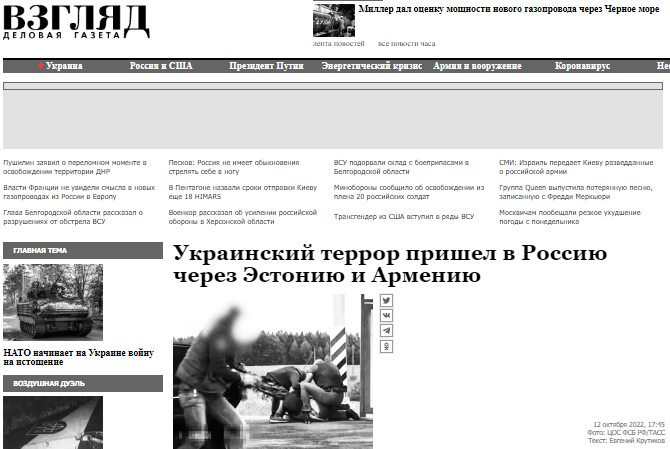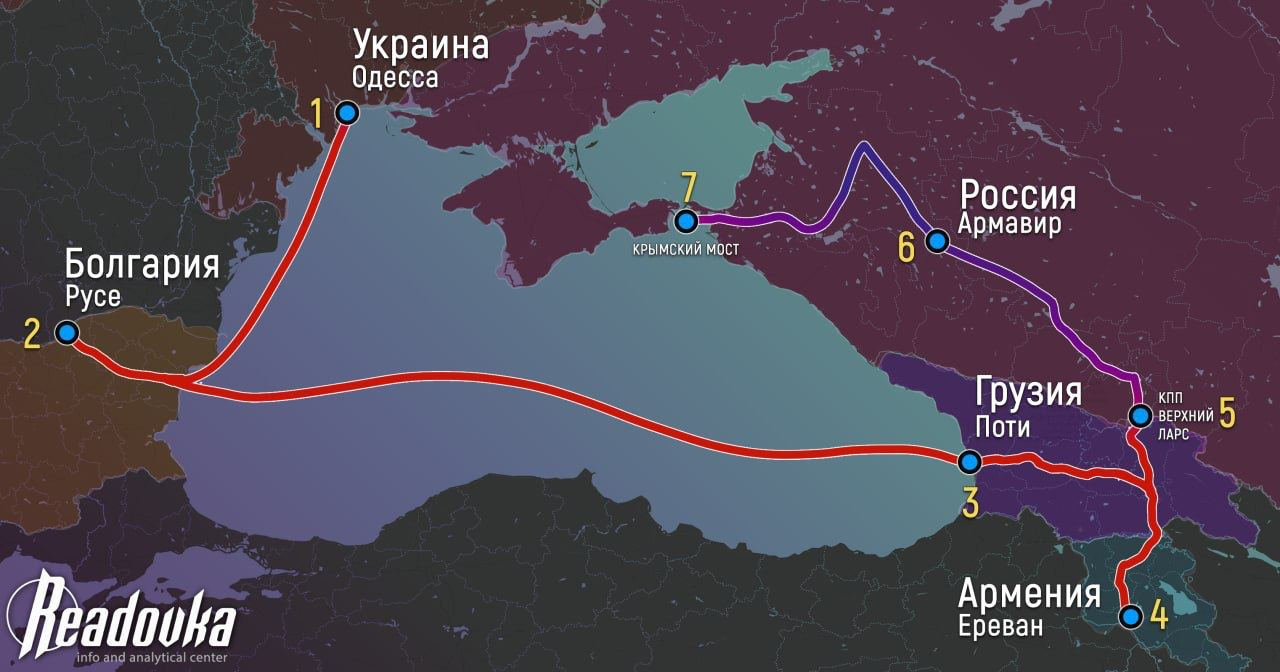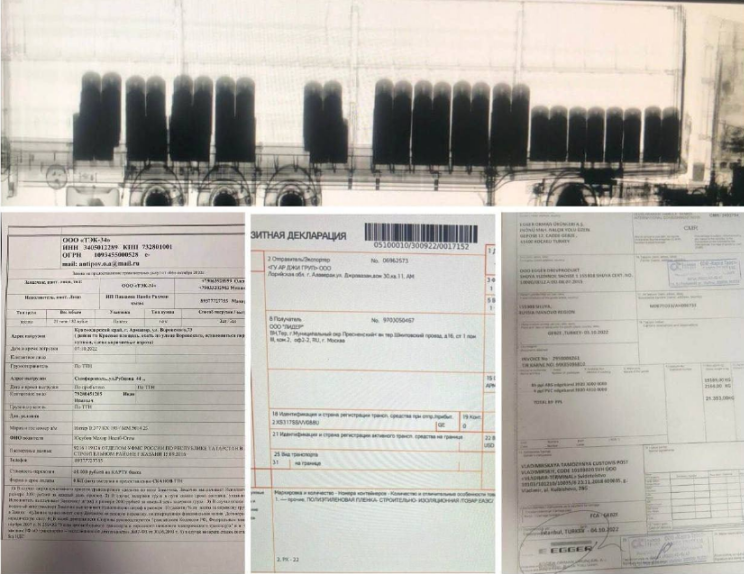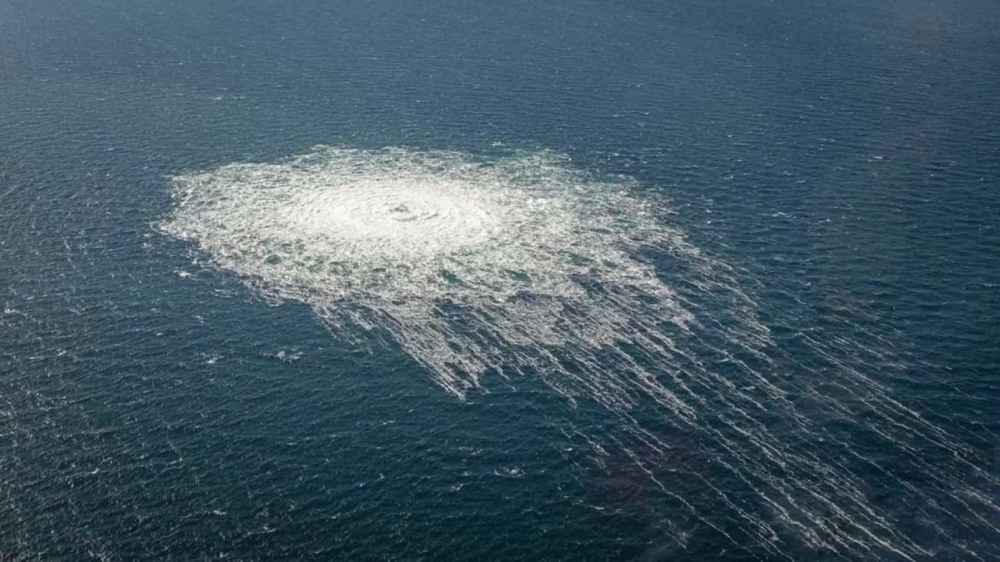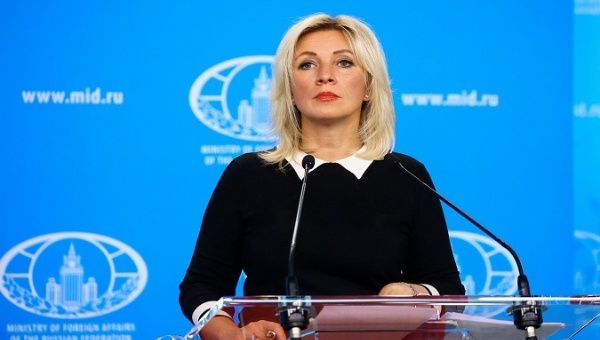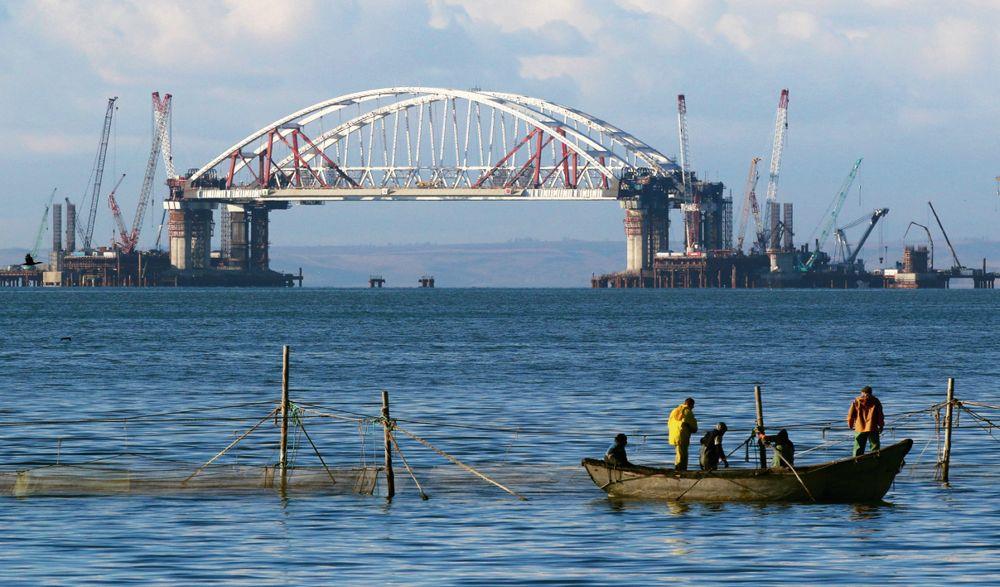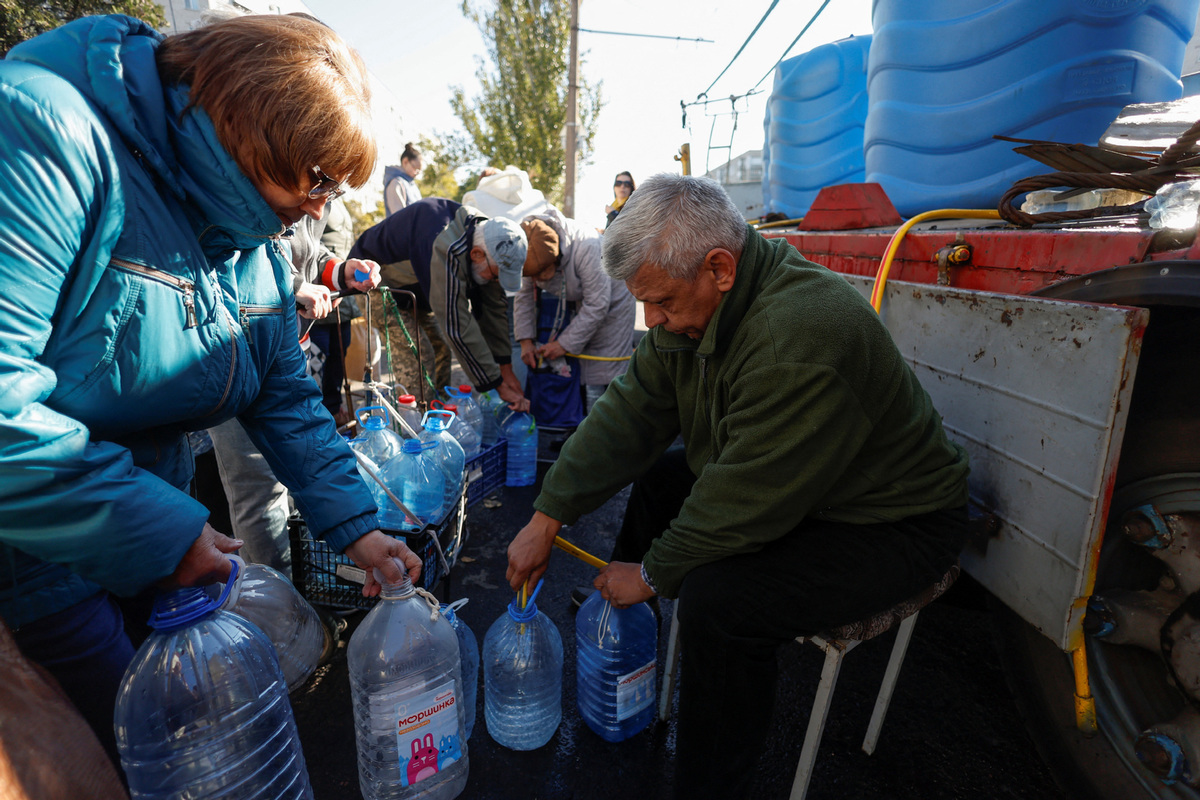POSTED BY @NSANZO ⋅ 10/12/2022

For the second consecutive day, the Russian aerospace forces attacked critical Ukrainian infrastructure in an act that has been condemned again by Ukraine and its partners, who consider it unacceptable that Russia does, more than 200 days after the start of its military intervention, what NATO and its most important countries tend to be the starting point. Russia continued to attack power plants and hydroelectric plants yesterday, which has forced Ukraine to stop the export of electricity and ask the population to reduce consumption. Cities like Lviv have been left without electricity.
Contrary to the first day of this active phase of attacks against Ukrainian civil infrastructure, Russian missiles also attacked railway infrastructure, two of which stand out: the Pavlograd communications hub in the Dnipropetrovsk region and Shepetovsky, in the Khmelnitsky region, in the west of the country, key to the logistics of Western arms deliveries and their arrival at the front.
In recent hours, Ukraine has focused its speech on condemning the use of Iranian drones, an argument that it has used recently, especially in its attempt to obtain the supply of weapons, specifically for its air defense, by Israel. However, it is not Iranian drones but Russian missiles that are causing much of the material damage. But as military experts have pointed out, the Geran-2s play an important role: their use, less expensive than the use of Kalibr missiles, allows more intense attacks, with which the large number of simultaneous targets manages to saturate the Ukrainian air defenses. And it is that, despite the material superiority that Russia enjoyed in the first moments of its military intervention, Moscow has never been able to completely dominate the skies.
Ukraine did not need NATO intervention to limit Russian aviation's possibilities of action to the maximum and its air defenses have responded with solvency during all these months. However, as has also been seen across the front lines, no air defense is infallible and the combined use of a large number of missiles and drones is capable of overwhelming and overcoming enemy defenses. That has been the tactic on major targets like the Antonovsky Bridge in Kherson and appears to be used by Russian forces in this recent attack as well.
The attacks by Russian missiles - and Iranian drones - on Ukrainian energy infrastructures have caused a wide wave of indignation in Ukraine and among its partners, who have forgotten that electrical substations and water supply and filtering infrastructures have been one of the recurring targets of Ukrainian troops in Donbass over the past eight years. Hence, on the other side of the front, despite the solidarity that may exist with the civilian population, this attack that seeks to undermine communications to limit Ukraine's offensive possibilities has been seen as justified.
Original Article: DonRF
We are not gods, we are far from being gods, we are simple humans. It is humans who serve in the Aerospace Forces of the Russian Federation and who today, contrary to what yesterday's politicians claimed, have proven that "we can repeat" is more than just a slogan. Of course, they did it again on a slightly lower scale, less epic than the day before, but don't let the map fool you: it went well. Both Caspian Sea flotilla Kalibrs and X-101s have been used alongside [Iranian-made] Geran-2 drones to open up air defenses and R-37M air-to-air missiles as a diversion.
The result is that the air defense has been overwhelmed again: all objectives have been hit more clearly than on the first day. First, the Gerans collapsed the Ladizhenskaya power station and later the Kalibr illuminated the city of Lviv again, destroying two plants. Once again, something hit the Bushitinskaya plant, but the governor of the region, like a good partisan, kept silent and only mumbled to say that everything will be repaired and that the air defenses had intercepted all the missiles. . And the list goes on, for example, in Sepetovka, the homeland of Nikolai Ostrovsky, a powder keg exploded. And a military unit. The list is long. The Soviet heritage happens to be on the loss list and the German Iris-Ts do not help, it is she who was outclassed by the Kalibr missiles. They went through it.
In response, the enemy hits the long-suffering Donbass and the border with the Russian Federation, broken with anger and aware that tomorrow there will be more missiles. And there will still be. At the moment, the population of kyiv begins to understand what is happening and leaves the city. They do the right thing, this is not stamps on the Crimean bridge, but the missiles of the Russian Aerospace Forces. I would also advise people in cities near critical infrastructure to do something similar and do it quickly. You never know what can happen in the future.
I am far from happy, because we are at war with ourselves, there are Russians killing other Russians. And it's not a victory, it's just something like the artillery before the offensive. Once again, civilians will suffer and the chances that the attacks will stop prematurely tend to be zero. But seeing these steps in the right direction, which will strengthen Russia, I cannot help but rejoice. I don't care what the humanists say. Work, fellow officers. Keep working. For Donbass and for the border territories, for the victims of the Maidan, for the terrorist attacks and those tortured, for those civilians who have lived for months in cellars. And for those who, thanks to these missiles, will survive on the ground when the ground battle comes.
https://slavyangrad.es/2022/10/12/el-se ... more-25686
Google Translator
************
News of Ukrainian terrorism
October 12, 11:00

News of Ukrainian terrorism
FSB organizer of the terrorist attack on the Crimean bridge
Theses from the FSB statement about the terrorist attack on the Crimean bridge:
https://t.me/boris_rozhin/66912 - zinc
https://t.me/boris_rozhin/66921 - photos of the sacramental
* * *
A Ukrainian terrorist with MANPADS was detained by the
FSB; preparation by special services of Ukraine of sabotage and terrorist acts using high-precision weapons in the Moscow region was stopped.
In the course of the complex of operational-search measures, a citizen of Ukraine, born in 1972, was detained, who, on the instructions of the SBU, in a cache equipped in a car, delivered to Russia from Kyiv in transit through the territory of Estonia portable anti-aircraft missile systems "Igla" to prepare terrorist acts, and also picked up their place confidential storage.
The defendant has repented of his deed and is cooperating with the investigation. Two Igla MANPADS and means of communication confirming his criminal actions and contacts with SBU officers were confiscated from him.
https://t.me/boris_rozhin/66917 (video)
https://colonelcassad.livejournal.com/7911420.html
Well, that contradicts the report pinning MI5. I expect both are correct.
Tips for phones in the NWO zone
October 12, 12:24

Tips for phones in the NWO zone
This post will be useful for those who are, departing or planning to depart to the NWO zone. A small life hack from a veteran of the PTSD Team, who has been at the forefront from the very beginning of the operation, and in general, has a huge database experience behind him.
At the place of residence of the NWO, you must have two telephones. One is yours personally, the second is for the task. From the first you call home and CATEGORICALLY do not take to the exit. Laughter to those who will fuck up the phone not only with data about their unit, but also personal data, which, when unlocked, will immediately go to the Internet.
The second phone must be autonomous, DO NOT put SIM cards into it. As soon as you insert a SIM card, the tower accepts your IMEI, and then it's a matter of technology. It is strictly forbidden to use SIM cards from other areas.
Be sure to download offline maps like “Alpine Quest” or “Offline maps” to your phone. Do not download from the markets, look for a cracked version on the Internet. In these applications, you can download the map area and use it without the Internet. Without this ANYWHERE. (You can also set it there so that the point shows the coordinates in X, Y and not in degrees, it is very convenient when adjusting, and there is a compass right away). Upgrade Yandex layers (Yandex layer and Yandex roads).
NEVER PUT your units on maps. In extreme cases, make a spread of 500 meters at least and call third-party words (shop, library, etc.)
Throw Orion out, this bullshit quickly discharges, the coordinates are not accurate, the connection to GLONASS will take longer than the CBO lasts. If you have nothing but Orion, TURN OFF GPS IN IT!
Take care of yourself.
(c) "Personnel"
https://t.me/boris_rozhin/66935 - zinc
https://colonelcassad.livejournal.com/7911512.html
Google Translator
21st century warfare, good grief. Couldn't they just leave the goddamn phones at home? This 'connectedness' fetish is a neurosis.
******************
A Perfect Storm in US Foreign Policy
Posted by INTERNATIONALIST 360° on OCTOBER 11, 2022
M. K. BHADRAKUMAR

The old adage is that a good foreign policy is the reflection of the national policy. A perfect storm is brewing on the foreign policy front in America triggered by the OPEC decision on Thursday to cut oil production by 2 million barrels a day, which will on the one hand drive up the gas price for the domestic consumer and on the other hand expose the Biden Administration’s lop-sided foreign policy priorities.
At its most obvious level, the OPEC decision confirms the belief that Washington has lost its leverage with the cartel of oil-producing countries. This is being attributed to the deterioration of the US’ relations with Saudi Arabia during the Biden presidency. But, fundamentally, a contradiction has arisen between the US interests and the interests of the oil producing countries.
Contradictions are nothing new to the geopolitics of oil. The 1970s and 1980s witnessed two major “oil crises.” One was man-made while the other was an interplay of historical forces — the Yom-Kippur War of 1973 and the Iranian Revolution of 1979.
In the downstream of the Yom-Kippur War, the Arab nations weaponised oil and proclaimed an oil embargo on western nations which were perceived to have supported Israel in the war. The result was that the price of oil rose nearly 300% in less than 6 months, crippling the world’s economy.
President Nixon asked petrol stations not to sell gasoline from Saturday night through until Monday morning. The crisis affected industry more than the average consumer.
In 1979, the Iranian Revolution hit oil production rates and the world’s oil supply shrunk by 4%. Panic set in, demand for crude oil shot up and price more than doubled.
The Biden Administration tempted Fate by underestimating the importance of oil in modern economic and political terms and ignoring that oil will remain the dominant energy source across the world for the foreseeable future, powering everything from cars and domestic heating to huge industry titans and manufacturing plants.
A smooth transition to green energy over time is largely dependent on the continued availability of plentiful, cheap fossil fuel. But the Biden Administration ignored that those who have oil reserves wield a huge amount of power over our oil-centred energy systems, and those who buy oil are on the contrary, cripplingly dependent on the market and the diplomatic relations which drive it.
The Western powers are far too naive to think that an energy superpower like Russia can be simply “erased” from the ecosystem. In an “energy war” with Russia, they are doomed to end up as losers.
Historically, Western nations understood the imperative to maintain good diplomatic relations with oil-producing countries. But Biden threw caution into the wind by insulting Saudi Arabia calling it a “Pariah” state. Any improvement in the US-Saudi relations is not to be expected under Biden’s watch. The Saudis distrust American intentions.
The congruence of interests on the part of the OPEC to keep the prices high is essentially because they need the extra income for their expenditure budget and to maintain a healthy investment level in the oil industry. The International Monetary Fund in April projected Saudi Arabia’s breakeven oil price — the oil price at which it would balance its budget — at $79.20 a barrel.
The Saudi government does not disclose its assumed breakeven oil price. But a Reuters report suggested that a preferred price level would be around $90 to $100 a barrel for Brent crude — at which level, it won’t have a huge impact on the global economy. Of course, over $100 will be a windfall.
Meanwhile, a “systemic” crisis is brewing. It is only natural that the OPEC views with scepticism the recent moves by the US and the EU to push back Russia’s oil exports. The West rationalises these moves as aimed at drastically reducing Russia’s income from oil exports (which translates as its resilience to fight the war in Ukraine.) The latest G7 move to put a cap on the prices at which Russia can sell its oil is taking matters to an extreme.
The OPEC regards it as a paradigm shift, as it implicitly challenges the cartel’s assumed prerogative to ensure that global oil supply matches demand, where one of the key measures of supply-demand balance is price. Arguably, the West is de facto setting up a rival cartel of oil-consuming countries to regulate the oil market.
No doubt, the West’s move is precedent-setting — namely, to prescribe for geopolitical reasons the price at which an oil-producing country is entitled to export its oil. If it is Russia today, it can as well be Saudi Arabia or Iraq tomorrow. The G7 decision, if it gets implemented, will erode OPEC’s key role regulating the global oil market.
Therefore, the OPEC is proactively pushing back. Its decision to cut down oil production by 2 million barrels per day and keep the oil price above $90 per barrel makes a mockery of the G7 decision. The OPEC estimates that Washington’s options to counter OPEC+ are limited. Unlike in the past energy history, the US does not have a single ally today inside the OPEC+ group.
Due to rising domestic demands for oil and gas, it is entirely conceivable that the US exports of both items may be curtailed. If that happens, Europe will be the worst sufferer. In an interview with FT last week, Belgium’s prime minister Alexander De Croo has warned that as winter approaches, if energy prices are not brought down, “we are risking a massive deindustrialisation of the European continent and the long-term consequences of that might actually be very deep.”
He added these chilling words: “Our populations are getting invoices which are completely insane. At some point, it will snap. I understand that people are angry . . . people don’t have the means to pay it.” De Croo was warning about the likelihood of social unrest and political turmoil in European countries.
Without doubt, this is a tectonic shift in geopolitics which may probably turn out to be more important than the conflict in Ukraine in the making of the multipolar world order.
This perfect storm in Biden’s foreign policy can also impact the midterms in November and deliver a Republican majority in the Senate, which could set the tempo for the 2024 US presidential election.
The Kremlin spokesman Dmitry Peskov has said that by turning away from Russian energy, Europe has become a captive market for the US oil companies which are now making “crazy money,” but the high cost of it is draining away the competitiveness of the European economy.
“Production is collapsing. Deindustrialization is coming. All this will have very, very deplorable consequences for the European continent over probably, at least, the next 10-20 years,” Peskov said.
Russia could be the biggest “gainer” of OPEC+cuts. The expert opinion is that oil prices will move higher from current levels through year-end and next year. That is to say, Russia will not cut any output while the price of oil is set to rise in the coming months! As oil price rises, Russia will not have to cut even a barrel of its production so long as it has a big enough market after December to sell the crude now going to Europe. Again, Russia, for its part, reiterates that it will not supply oil to countries that would join the G7 price cap. It is matching the Biden Administration’s non-market instruments.
https://libya360.wordpress.com/2022/10/ ... gn-policy/
Stoltenberg: Russia’s Victory Will Be NATO’s Defeat
Posted by INTERNATIONALIST 360° on OCTOBER 11, 2022

NATO Secretary-General Jens Stoltenberg AP Photo/Olivier MatthysJens Stoltenberg meets the media during a press conference at the NATO headquarters in Brussels, Belgium, October 11, 2022 © AP / Olivier Matthys
NATO Secretary General Jens Stoltenberg told reporters on Tuesday that a military victory for Russia in Ukraine would spell defeat for the entire Western alliance. Despite providing “unprecedented support” to Kiev, Stoltenberg still claims that the US-led bloc is not a party to the conflict.
Addressing reporters on the eve of a meeting of NATO defense ministers, Stoltenberg declared that continued arms shipments to Ukraine are vital to ensure “that Ukraine wins the battle, the war against the invading Russian forces.”
However, this assistance has come at a price for the alliance’s own militaries. Germany’s weapons and ammo stocks have been critically depleted since late August. The same month, the Wall Street Journal reported that the US’ stockpiles of 155mm artillery ammunition were “uncomfortably low.” Asked whether weakening its own forces to strengthen Ukraine’s is a wise policy, Stoltenberg described the conflict in Ukraine as existential to the alliance.
“If [Russian President Vladimir] Putin wins, that is not only a big defeat for the Ukrainians, but it will be the defeat, and dangerous, for all of us,” he said.
NATO is heavily invested in Ukraine, with the alliance’s members providing training, intelligence capability, and tens of billions of dollars worth of weapons to the Ukrainian military. Despite this “unprecedented support,” Stoltenberg has repeatedly claimed that “NATO is not a party to the conflict.”
Moscow sees things differently. Russian Foreign Minister Sergey Lavrov has accused NATO of waging war against Russia “by proxy,” while Putin has described Russia as fighting “the entire Western military machine” in Ukraine.
NATO leaders claim that their weapons systems have enabled Kiev’s troops to make a series of advances in the south and east of the country in recent weeks. However, with Moscow’s military operation under new command, these advances have come to a halt, and after two days of devastating Russian missile strikes on Ukrainian military and infrastructure targets, Kiev is once again pleading with the West for heavier and longer-range weapons.
https://libya360.wordpress.com/2022/10/ ... os-defeat/
Recrudescence of the Russia-Ukraine Conflict: Zelensky’s Capitulation or Total Collapse of Europe
Posted by INTERNATIONALIST 360° on OCTOBER 11, 2022
Yoselina Guevara López
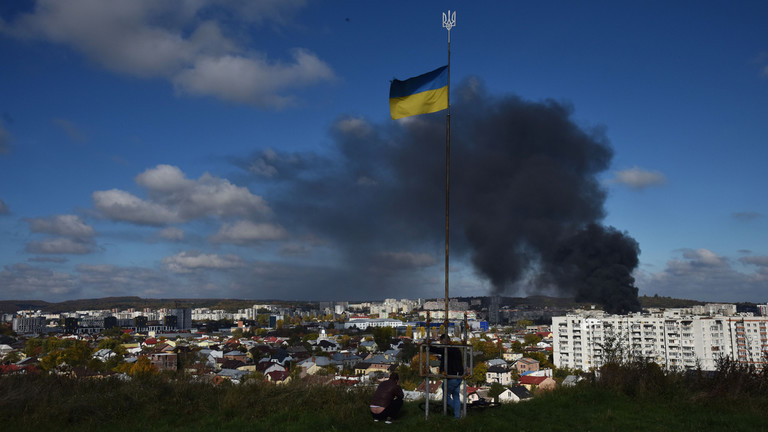
This Tuesday, October 11, the Russian Federation carried out a new massive attack against energy and military targets in Ukraine. According to information issued by the Russian Ministry of Defense, the Russian Armed Forces used in the operation long-range precision weapons, both air and sea, against military installations and pre-selected targets of the Ukrainian energy system.
There is no doubt that we are in the presence of an escalation of the Russia-Ukraine conflict, in which Moscow has tried to be as restrained as possible, if this definition fits within a confrontation. We can affirm what has been said above given that the Russian response has been reasoned to an offensive from Ukraine which includes forceful facts: sabotage of the Nord Stream 1 and 2 pipelines, the murder of Daria Dugina, the attack on the Crimean bridge, not to mention the attempts of incursion from the Ukrainian ranks towards the Russian border.
The Kremlin’s red line
The Crimean bridge had been singled out by President Vladimir Putin as an impassable “red line”, hence the attack on Saturday, October 8, is provoking a harsh response from Moscow. The missile barrage is not sparing any Ukrainian region: from the capital, Kiev, the cradle of Russia, to the port city of Odessa, the “Russian” pearl of the Black Sea, from the Russophone Kharkiv to the more nationalistic and central European Leopoli.
The extent of the Russian retaliation is underlined by the fact that at least three cruise missiles flew over the sky of neutral Moldova, which provoked the indignation of the Chișinau government, which immediately summoned the Russian Federation’s ambassador to Bessarabia Oleg Vasnecov. The fact that the high-explosive shells flew over the Cobasna ammunition depot, the largest in Central and Eastern Europe, with more than 20 thousand tons of war material, is a cause for concern for the Moldovan authorities, who fear irreparable accidents.
Breakdown of negotiation channels
The explosion of a Russian missile near an SBU (Ukrainian intelligence) center in Kiev reveals Moscow’s growing propensity to physically liquidate Ukraine’s politico-military leaders. For the time being, government departments and presidential palaces have not been touched by Russian offensives, but this could change at any moment. Not attacking civilian and administrative buildings where negotiators were supposed to be was one way of trying to keep a dialogue channel active. But there was a fracture from the moment Zelensky signed Presidential Decree 679/2022 to expressly prohibit any negotiations with Russia for a cease-fire, thus scuttling any truce or even a hint of peace from Ukraine.
General Winter and collapse of Europe
The Russian missile offensive is hitting Ukraine’s electrical infrastructure at the gates of the winter season. Turning off the lights all over the Ukrainian territory is a way of announcing the arrival of “General Winter”; this operation is mainly affecting the civilian population. With the pressure at the energy level, Russia seems to be trying to bring Zelensky to capitulation, who flatly refuses to be the loser, even though he is dragging entire countries to the hecatomb, because it is not only Ukraine but Europe.
In addition to this stubbornness to continue feeding the Russia-Ukraine conflict from the West, European governments are making it clear that they care little about the lives that perish in Ukraine and even the economic collapse to which they are leading all EU countries without energy supplies from Russia. The only objective in sight is the continuity and submission of Europe to the designs of the United States in its drive against Russia with the help of its allies and NATO.
The predictions are clear, the inhabitants of the European countries will continue to rebel forcefully against the governments in power that sustain the Ukrainian adventure. It is precisely the populations of the Western nations who are the economic victims of the constant fighting in Ukraine, who send, from their pockets and tax payments, billions of euros and dollars in cash and weapons. The budgets of these states, being indirect participants in the conflicts, which already had huge deficits, are sinking into the abyss. The double-digit inflation is painfully affecting millions of families who will have no heating during the winter, and even at the most critical levels, not even enough to eat. Hundreds of large and small companies are closing, in countries with a manufacturing tradition such as Italy and Germany, therefore, unemployment will increase, which is a breeding ground for a generalized social outburst. A cold winter is approaching, but certainly one of protests in the old continent, we will see if its historical revolutionary tradition makes its presence felt.
https://libya360.wordpress.com/2022/10/ ... of-europe/
Since the beginning of this operation Russia has been reacting, which any chess player will tell you is the mark of doom. NATO has been pushing Russia's buttons, though the results have not always been as desired. That may change, I would not put it past Russia to launch a winter offensive even as they posture 'preparations'. That gambit worked pretty well for the Ukes of recent.
**************
PROSPECTS FOR A TURNING POINT IN THE NATO VS. RUSSIA
Oct 11, 2022 , 12:19 p.m.

Russia destroyed this shopping center because, according to the Kremlin, it housed missile weapons of the Ukrainian army (Photo: Thomas Peter / Reuters)
Through the use of its strategic aviation and the launch of long-distance cruise missiles, Russia attacked important Ukrainian infrastructures, essentially military, electricity and telecommunications, on October 10, 2022. According to military analysts during these days, Russia also disabled through war electronic services of the satellite company Starlink (owned by billionaire Elon Musk), breaking the communications and operational intelligence of the Ukrainian forces.
Attacks were recorded in 14 Ukrainian cities including kyiv, its capital. Seven strategic targets were destroyed and at least 70% of the Ukrainian territory lost power.
The first of the most relevant pronouncements in the international arena regarding the event came from Vladimir Putin himself. The Russian president announced "a massive attack with high-precision and long-range weapons" from the air, sea and land "following the proposal of the Ministry of Defense and in accordance with the plan of the Russian General Staff."
Putin asserted that, in the event that the Ukrainian government continues with "attempts to carry out terrorist attacks" on Russian soil, Moscow's responses will be "harsh and corresponding to the level of threats" created against the country. This implies that Russia has responded to the attack in Moscow where Daria Dugina was killed, the blowing up of the Nord Stream gas pipelines and the recent attack on the bridge in Crimea, operations that have terrorist and covert patterns, which would have been carried out by Ukrainian authorities and in some cases with the collaboration of NATO countries, according to the Kremlin.
"No one should have any doubts about it," said the president, denouncing the "sabotage" on the Crimean bridge. It was a "terrorist attack aimed at destroying critical Russian civilian infrastructure."
Next, the head of European diplomacy, Josep Borrell , pointed out : "These types of actions have no place in the 21st century. I condemn them in the strongest possible way. We are on Ukraine's side. Additional military support from the EU is on the way." .
Ukrainian President Volodymyr Zelensky said the Russian strikes "do not intimidate Ukraine." For his part, French President Emmanuel Macron said the Russian attacks signify a "profound change in the nature of the war," referring to the civilian losses on Ukrainian soil.
MEANING OF THE RUSSIAN COUNTERATTACK
The recorded actions take on particular relevance because they occurred on a scale not seen since the Special Military Operation (OME) began, and because one of the precision missiles hit just meters from President Zelenski's official office, which has not occupied for months, according to reports.
The bombings in response to Ukraine's terrorist attacks against Russian civilians and infrastructure, now in a larger, more forceful presentation and in "anti-terrorist" actions, imply a change of course in the conflict, not only because of its story, but because of the type number of targets, mode of attack and level of fire used.
It is worth remembering that, for months, Russia refrained from attacking military buildings and government buildings in kyiv, making it clear that they have always been able to directly attack the political and military leadership of the country.
In operational terms, Russia managed to dismantle the belief that Ukraine's anti-missile shields have protected the capital. In reality Russia had determined not to attack as they have done now.
The focused but extended radius of effect blunt force used by Russia dramatically degraded Ukraine's energy capabilities, creating new logistical, operational, and communication problems for the entire country and thus for its armed forces.
Obviously the Russians further weaken the country's internal-operational front, but the shock wave goes beyond Ukraine. The Slavic country has been distributing electricity to the European Union (EU) via Romania since July , and now these possibilities have ceased just at the beginning of the coldest months.
After a prolonged period of calibration and attrition containment, which Ukraine used to reorganize, arm itself with Western support, and even recapture Russian-occupied ground, the Kremlin is ramping up its firepower to double down on creating conditions that could force a negotiation, not only with a militarily weakened Ukraine, but with a Europe degraded in terms of energy.
Russia intends to change the course of the war without ruling out that NATO's support for kyiv translates into continued wear and tear.
FUTURE PROSPECTS
The OME's initial plan was to denazify and demilitarize Ukraine, forcing it into neutrality and away from the Atlanticist axis. This process, in its beginnings, was not intended to be executed solely by the use of blunt force. Putin opted for breaking the lines of command and consolidating the goals of the OME through an orderly process and for an extended period of time. That is why Russia negotiated at the time, withdrew from the outskirts of kyiv and for months did not attack key targets in the capital.
The kidnapping of the Ukrainian Armed Forces by pro-Nazis, the use of Ukraine as a NATO weapon against Russia, the annexation of new territories to the Federation and the painful prolongation of the war induced by the United States, imply a change of situation without going back and, therefore, a change of methods is imposed for the fulfillment of the objectives of the OME through a superior use of force.
Russia has shown that it did not want to annihilate the Ukrainian political and military high command and perhaps they do not intend to do so yet, understanding that they need a counterpart to be able to negotiate in the future. Additionally, Russia sends a message by elevation to the United States and Europe: not to back down, to be able to demolish the pinnacle of power in kyiv and not to give in to nuclear intimidation.
Their use of force acquires another kind of non-nuclear deterrent through the "counter-terrorist" response category. Putin has promised proportionality in the response, which also implies that this escalation will not continue at the current rate for a long time.
Finally, Moscow would be hoping to contain Ukraine while forcing Europe to negotiate. All this at the time of the winter energy crisis, the even more exorbitant increase in energy prices, the recession, and while the political crises in several European countries are becoming more acute.
Unless military events of immense proportion erupt, there are no solid indications to refer to any scenario with an outcome in the short term.
https://misionverdad.com/globalistan/pe ... n-vs-rusia
Google Translator
